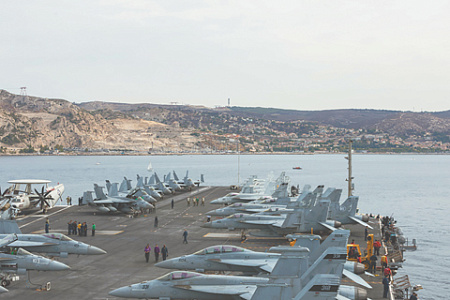
The prospect of a U.S. military intervention in Venezuela appears to be on hold, despite earlier forceful rhetoric from President Donald Trump. A recent report by The Wall Street Journal, citing American officials, indicates that while the removal of Venezuelan President Nicolas Maduro remains a foreign policy priority for the White House, the administration has, at least temporarily, deferred a decision on a ground operation in the South American nation.
This pause comes after a period of notably shifting signals from the White House. Following the deployment of the USS Gerald R. Ford aircraft carrier to the Caribbean, President Trump had explicitly told journalists that ground operations were “on deck.” Yet, just days later, on October 31, he categorically dismissed the possibility of airstrikes against Venezuelan military targets, and by November 2, he publicly questioned the readiness of the United States to engage in a full-scale war with Venezuela.
Despite the apparent hesitation on direct military action, the White House continues to view President Maduro as an adversary whose removal from power is desirable through any means. A primary driver of Washington’s discontent stems from Caracas’s deepening ties with both Beijing and Moscow. Officially, however, the administration has framed its increased military presence and pressure in the Caribbean as a response to allegations that Maduro and his government are enmeshed with transnational criminal organizations like the “Tren de Aragua” and the “Cartel de Soles,” a criminal syndicate purportedly formed by Venezuelan military officials. These serious accusations, however, largely remain unsubstantiated.
The narrative of a broadened “war on drug cartels,” used as a pretext for pressuring Venezuela and its leader, is reportedly facing increasing scrutiny within U.S. ruling circles. Officials involved in Latin American policy have confided to The Wall Street Journal that President Trump is actively weighing various courses of action, moving beyond the immediate prospect of a ground invasion.
Among the alternatives to a direct military incursion, three principal scenarios are believed to be under consideration. The first involves a significant escalation of economic pressure on Venezuela through expanded sanctions and tariffs targeting nations that continue to purchase Venezuelan oil. The second strategy calls for bolstering the Venezuelan opposition and increasing the U.S. military footprint in the broader region. This approach operates on the premise that widespread public dissatisfaction with Maduro, if adequately stoked and supported by Washington, could lead to his internal removal. However, this strategy notably failed during Trump’s first term in 2019, when the U.S. refused to recognize the 2018 Venezuelan election results and backed opposition leader Juan Guaidó as interim president. Despite this, Maduro retained control, and Guaidó’s self-proclaimed government was ultimately dissolved in 2022.
The third, and arguably most precarious, scenario involves targeted airstrikes or covert operations. These actions would aim at specific governmental and military installations, or even individuals, within Venezuela. Compounding the strategic uncertainty, The Wall Street Journal also highlights that the White House itself appears to lack a clear, singular objective: whether the ultimate goal is the complete ousting of President Maduro or merely to compel him into concessions. This fundamental ambiguity naturally precludes any definitive timeline for potential operations.
Geopolitical analysts underscore the significant risks associated with any U.S. military action in Venezuela. Dmitry Rosenthal, Director of the Institute of Latin America at the Russian Academy of Sciences, emphasized in comments that both military operations and even targeted strikes have always been viewed as high-risk, high-cost ventures. “Such actions would inevitably trigger widespread protests from other Latin American nations, severely eroding trust in the United States and complicating its regional policy,” Rosenthal explained. He believes a full-scale military operation remains highly improbable, yet the threat of targeted airstrikes against Venezuela persists. These potential strikes, he posited, could target Venezuelan military facilities or what the U.S. might subsequently label as “drug trafficking bases,” underscoring the range of justifications that could be employed.
Meanwhile, as the Trump administration continues to weigh its options and seek justification for more assertive actions in the region, President Maduro has been actively consolidating his domestic power base. Diosdado Cabello, Venezuela’s Minister of Interior, recently announced that the United Socialist Party of Venezuela (PSUV) unanimously granted Maduro the authority to reorganize the party’s structure and appoint its national leadership “to ensure greater political efficiency.” Experts suggest this move reflects a predictable consolidation of power by a head of state facing a crisis, quite possibly fueled by the perceived pressure from the United States, thereby inadvertently strengthening Maduro’s position internally.
